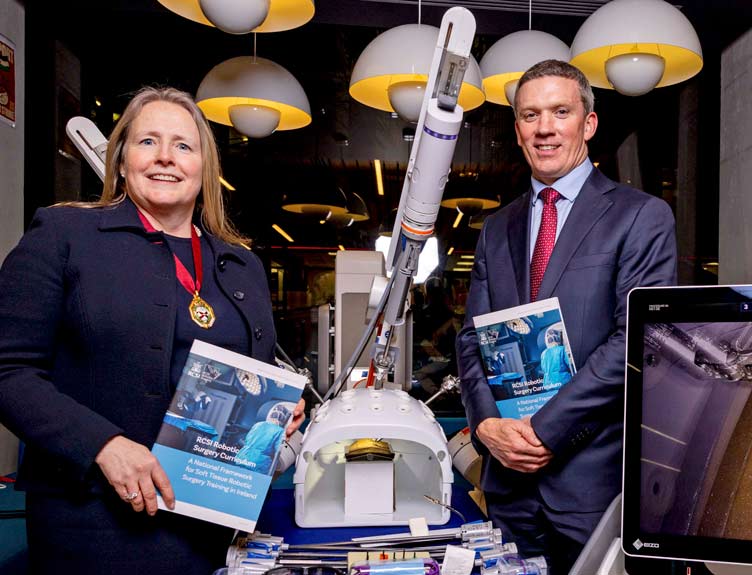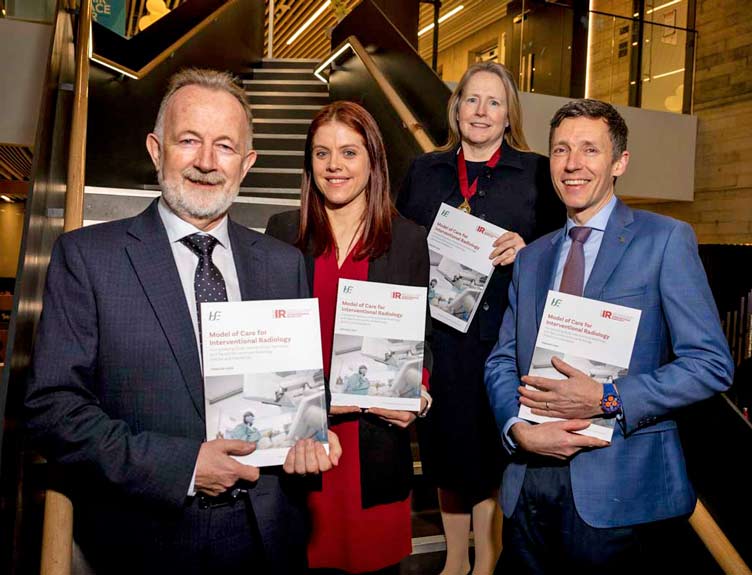RCSI welcomes publication of Trauma Steering Group report

RCSI welcomes today’s publication of the report of the Trauma Steering Group following approval by Government, and endorses the report’s proposal that trauma care be centralised as the safest way to deliver care to patients with significant injury who require urgent treatment.
Almost one in ten people will die as a result of major trauma. Data from the National Office of Clinical Outcomes (NOCA), based at RCSI, shows poorer outcomes in Ireland, in comparison to other developed countries. It also shows an unacceptable variability in outcomes amongst hospitals in Ireland. A Major Trauma Audit recently published by NOCA showed that 28% of trauma patients had to be transferred to another hospital for on-going care as their care needs could not be provided by the initial receiving hospital.
According to RCSI President Professor John Hyland: “The best outcomes are achieved by patients receiving the right treatment in the right place by experienced trauma teams as rapidly as possible, yet the trauma system in Ireland is fragmented and under-invested. This is impacting on outcomes.” Professor Hyland said that “The Trauma Steering Group’s report highlights the need for investment in a re-organised national system, to improve outcomes and equity of care. Many of our surgeons and allied health care professionals are trained to the highest standards in Trauma Care, and there has been progress in ensuring that patients with isolated hip fracture go direct to hospitals with orthopaedic surgery on site. However, the current lack of resources and fragmentation of trauma care in Ireland, limits best practice in trauma management.
“The recommendations of this important report must be urgently implemented, with the establishment of Trauma Centres and investment in trauma teams, ITU beds, transport, pre-hospital care and post-injury rehabilitation. RCSI will promote best practice in coordinating the fragmented nature of trauma care in this country and will continue to provide the highest standard of training to surgeons in the relevant specialties.”
Professor Hyland also said that the direct transfer of severely injured patients to trauma centres may free up some resources in other hospitals and facilitate better care for patients with other conditions. He said that greater centralisation in the delivery of trauma care is an important first step in hospital reconfiguration and should be used as a catalyst to implement the rationalization of 24/7 Emergency Departments.
A similar crisis in trauma care was addressed in the UK in 2010 through the centralisation of the delivery of trauma care. In London, Regional Trauma Care for a population of 10 million was reorganised in a process lead by RCSI graduate and Fellow, Professor Lord Darzi [1]. An analysis of the impact of an organised and adequately resourced system in London shows a dramatic improvement in quality and outcomes for the majority of severely injured patients. Survival rates increased by 50% over five years, saving an estimated 610 lives following the centralization.
Professor Hyland said that “former RCSI President, Professor Eilis McGovern who chaired the Trauma Steering Group, should be acknowledged for the bringing together the numerous stakeholders who examined the many issues in relation to prevention, transport and both acute care and rehabilitation, all of which need to be addressed to improve trauma outcomes”.
RCSI also acknowledges the role of the National Office of Clinical Audit in providing the means of documenting and reporting on trauma outcomes through Clinical Audits such as the Major Trauma Audit, the Irish Hip Fracture Database and the National ITU Audit. The rigorous use of data for evaluation and quality improvement should underpin all aspects of future Trauma Care.
RCSI is the training body for all of the surgical specialties and emergency medicine, the anchor professions involved in the delivery of trauma care. RCSI works with the HSE in supporting a clinical programme in Trauma and Orthopaedic Surgery in collaboration with the Irish Institute for Trauma and Orthopaedic Surgery.
<[1] Annals of Surgery 2016 Jul;264(1):188-94. doi: 10.1097/SLA.0000000000001393. The Impact of a Pan-regional Inclusive Trauma System on Quality of Care. Cole E1, Lecky F, West A, Smith N, Brohi K, Davenport R; ELoTS Study Collaborators.



